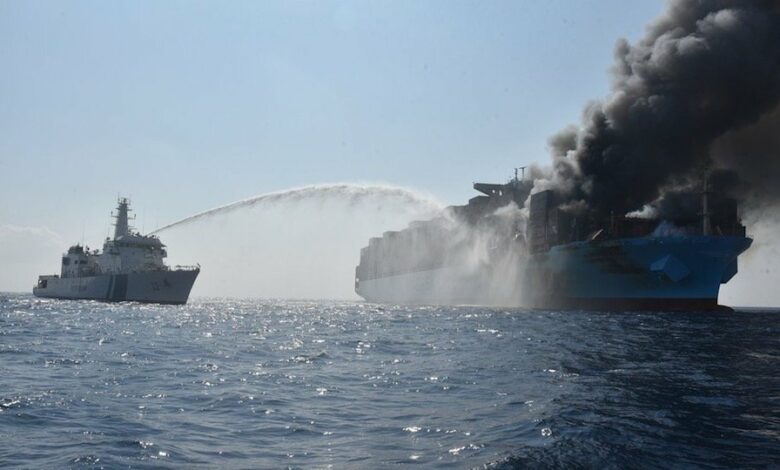Five shipping bodies join forces in bid to make transport of lithium-ion batteries safer

Five shipping bodies have joined forces to create common action on important safety issues, with the carriage of lithium-ion batteries high up on the agenda.
The five organisations – Cargo Incident Notification System (CINS), Confidential Human Factors Incident Reporting Programme (CHIRP), Container Owners Association (COA), International Cargo Handling Coordination Association (ICHCA), and Ship Message Design Group (SMDG) – say they will take advantage of unified information and data sources to bring greater awareness and understanding of issues with the goal of producing preventative output.
The participants said they have a commonality of purpose to create a framework for cooperation that enables each group to benefit from each other’s activities in respect of their strategies in areas of joint interest.
John Beckett, chair of ICHCA, commented, “This unique grouping of industry leaders has the potential to coordinate data, research and best practices across the broad spectrum of the international movement of cargo. A key goal is to create an awareness throughout the freight industry, amongst operators, regulators and policymakers as to practical and effective measures to improve safety.”
Deputy chair of CINS, Dirk Van de Velde, commented: “As an example of where immediate attention is required, containership fires are high on the list. The combined knowledge, experience and database resource of the signatories to this MOU, managed in a coordinated manner, have massive potential to leverage change in safety processes. We will be publishing guidance on the treatment of lithium-ion batteries, among other cargoes, in the near future.”
The dangers of carrying lithium-ion batteries on ships was highlighted in an Allianz Global Corporate & Speciality report, which ranked fire and explosion as the number one cause of marine insurance losses by value from 2017 to 2021. The research, issued in November 2022, also revealed the growing threat of fires caused by lithium-ion batteries that are not stored, handled or transported correctly.
Recently, serious and sometimes catastrophic incidents involving lithium-ion batteries have become more commonplace, with fires reported in all modes of transport – ocean, air and land — as well as in warehouses and where such consignments are at rest.
In search of practical changes that will alleviate dangers including lithium batteries, the MOU calls for coordinated efforts both on regional and international issues of common concern and engagement with relevant regulatory bodies including the International Maritime Organization and other appropriate United Nations agencies.
Other stated aims include working together to initiate worldwide surveys and studies that can assist with the furtherance of these organisations on behalf of their members and associates. There will also be sharing of research findings and publications to strengthen information exchange while avoiding duplication of effort by pooling resources.

“the MOU calls for coordinated efforts both on regional and international issues of common concern and engagement with relevant regulatory bodies including the International Maritime Organization and other appropriate United Nations agencies.”
Maybe if said entities had given the IMO and UN some teeth to act the problem would have already been addressed. Also, the USA is pretty much against IMO and the UN as one would know if one read and listened to what its politicians and media say and do.
QUOTE: A key goal is to create an awareness throughout the freight industry, amongst operators, regulators and policymakers as to practical and effective measures to improve safety.” END QUOTE
Sounds like a speech before some kind of elections. Vague wording , vague battle cries and what looks to me like another season of virtue signalling .
Since when ” awareness ” has been a meaningfull and potent weapon against criminals. ?Greed has always been the mother all all vices .
Since 1982 i have heard this magic tool called “awareness” . I believe in walls and barriers , not soft but iron-reinforced, aided by high voltage, preventing criminals from wrong doing and brutal uncompromising aplication of justice against those , who have malpracticed and have been caught red handed.
And since 1977 I have heard about container fires , container loss overboard and about cargo liquefaction .
For so many years i have heard this magic ” problem solving tool” called ” awarness , that I have become AWARE of it’s real meaning. For those interested , try spelling B.S.
Cheers.
The core of this issue is misdeclaration perpetrated by rogue shippers in full knowledge of the risk. It will only be effectively dealt with by the imposition of random checks at point of stuffing with mandatory life ban from shipping of offenders. Those offenders will be the shipper and the freight forwarder or equivalent.
The freight forwarder then has the greatest incentive to police the shippers.